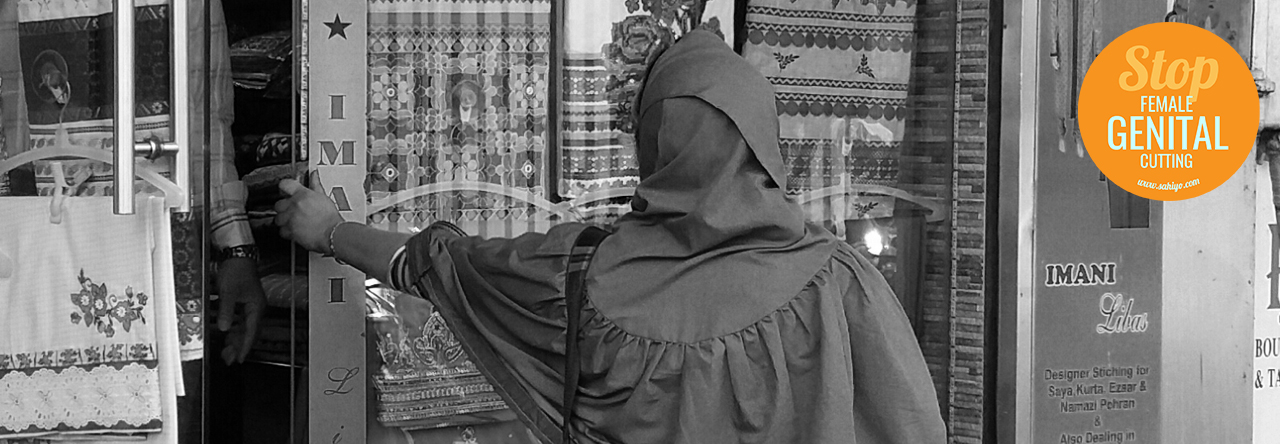(This article was later published in Gujarati. Read the Gujarati version here.)
by Anonymous
Age: 36
Country: India
I am a mental health professional and have been practicing counseling and therapy since 16 years. I learned about the practice of ‘khatna’ (Type I FGM) by chance, as my family spoke about the ceremony for a cousin of mine. I wanted to know more. I did not realize that I too had undergone it. I have no memories save a snapshot of me feeling a burning sensation and then being examined by my mom and grandmom.
I grew up learning never to talk about this subject, as this was the haram boti that was removed from my body. I was told I was now pure. As I grew older and studied psychology, I came across an article that spoke about FGM, and suddenly I understood what had happened to me on that day. I was shaken but left with no choice but to accept it, as no one understood the impact of what had happened – not even my progressive parents.
My life proceeded from then on no differently from that of other girls. My marital life, especially the sex, was unaffected. I was able to have a satisfactory sexual life and also orgasms, and largely I felt I was not affected by the khatna. Either that or I had repressed it so as to cope with the trauma that I may have undergone at the age of seven.
I remember at childbirth, however, I had to undergo an episiotomy. According to a study cited by the UNFPA, women who had undergone genital cutting faced a greater risk of needing a Caesarean section, an episiotomy, and an extended hospital stay after childbirth, compared with uncut women.
In peer supervision earlier this year, I processed what happened to me and dealt with it as a part of my life. I recognize in hindsight that there are effects of FGM. It scars the soul and you wonder if it is even required to be done.
The procedure of khatna may cause lasting psychological stress. Among children, it could trigger disturbances in behaviour, often because of betrayal of trust by loved ones. Adult women could also develop anxiety and depression.
As a mental health professional who understands all this, would I recommend khatna? No, I would not, as I find that at its core, it is a measure to control women’s sexuality. I would term it as intentional gender-based violence.

